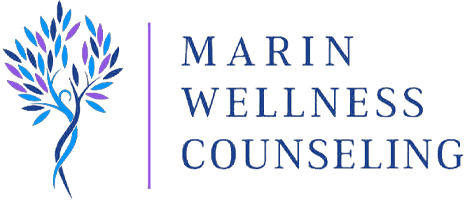Understanding Anxiety

Introduction
All of our therapists at Marin Wellness Counseling are trained in treating Anxiety.
In today’s fast-paced world, experiencing moments of stress and worry is common. However, when these feelings become overwhelming and persistent, they might be indicative of an anxiety disorder. Anxiety is a complex mental health condition that affects millions of individuals worldwide. This blog aims to provide a comprehensive understanding of anxiety, its causes, symptoms, and the various treatment options available to manage it effectively.
What is Anxiety?
Anxiety is a natural response that helps humans cope with challenging situations. It prepares the body to react to threats by increasing alertness, focus, and awareness. However, when anxiety becomes chronic and interferes with daily life, it can escalate into an anxiety disorder. Anxiety disorders are a group of mental health conditions characterized by excessive, persistent, and irrational worry or fear that significantly impairs a person’s ability to function.
Types of Anxiety Disorders:
- Generalized Anxiety Disorder (GAD): Individuals with GAD experience excessive worry about various aspects of their lives, often without a specific trigger.
- Social Anxiety Disorder: People with social anxiety disorder fear judgment and embarrassment in social situations, leading them to avoid interactions.
- Panic Disorder: Panic disorder involves sudden and recurring panic attacks, which are intense episodes of fear accompanied by physical symptoms like rapid heartbeat and shortness of breath.
- Specific Phobias: These are intense fears of specific objects or situations, such as heights, spiders, or flying.
- Obsessive-Compulsive Disorder (OCD): OCD is characterized by intrusive thoughts (obsessions) and repetitive behaviors or mental acts (compulsions) performed to alleviate anxiety.
- Post-Traumatic Stress Disorder (PTSD): PTSD occurs after experiencing a traumatic event and is marked by flashbacks, nightmares, and severe anxiety.
Causes of Anxiety:
- Anxiety disorders have complex and multifaceted origins, often arising from a combination of factors:
- Genetics: A family history of anxiety or other mental health disorders can increase susceptibility.
- Brain Chemistry: Imbalances in neurotransmitters, such as serotonin and dopamine, play a role in anxiety disorders.
- Environmental Factors: Stressful life events, trauma, childhood experiences, and ongoing stress can contribute to the development of anxiety.
- Personality Traits: Certain personality traits, like being highly self-critical or having a tendency to overthink, can make individuals more prone to anxiety.
Symptoms of Anxiety:
The symptoms of anxiety can vary widely and may include:
- Excessive worry or fear: Feeling on edge or restless most of the time.
- Physical symptoms: Rapid heartbeat, sweating, trembling, muscle tension, and gastrointestinal distress.
- Cognitive symptoms: Racing thoughts, difficulty concentrating, and persistent negative thinking.
- Behavioral changes: Avoidance of triggering situations, irritability, and changes in sleep and appetite patterns.
- Treatment Options:
- Thankfully, anxiety disorders are treatable, and several effective approaches are available:
Therapy Options:
- Cognitive Behavioral Therapy (CBT) is the gold standard for treating anxiety. It helps individuals identify and challenge negative thought patterns, develop coping strategies, and gradually confront feared situations.
- Lifestyle Changes: Regular exercise, a balanced diet, sufficient sleep, and stress reduction techniques like meditation and deep breathing can significantly alleviate anxiety.
- Mindfulness and Relaxation Techniques: Practices such as meditation, yoga, and progressive muscle relaxation can help manage anxiety by promoting relaxation and reducing stress.
- Support Groups: Connecting with others who experience similar challenges can provide validation and a sense of belonging.
- Medication: At Marin Wellness we do not prescribe Medication. Some clients can benefit from medication if symptoms are severe. Only a Psychiatrist or Physician can prescribe medications. Like Antidepressants, particularly selective serotonin reuptake inhibitors (SSRIs), and benzodiazepines may be prescribed by a psychiatrist to manage anxiety symptoms.
In Conclusion
Anxiety is a common mental health concern that can significantly impact a person’s quality of life. Recognizing the signs, understanding its causes, and seeking appropriate treatment are crucial steps in managing anxiety disorders. With the right approach, including therapy, medication, and lifestyle adjustments, individuals can find relief and regain control over their lives. Remember, reaching out for help is a sign of strength, and everyone deserves to live a life free from the shackles of anxiety.

